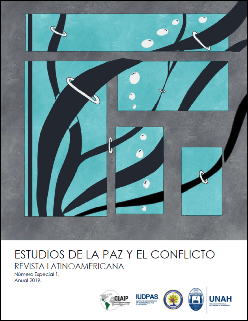ANTHROPOCENE, SPECIES COLLAPSE?
DOI:
https://doi.org/10.5377/rlpc.v0i0.9504Keywords:
Anthropocene, holism, cosmopolitanism, sustainable development, great acceleration, great transformationAbstract
In this essay we argue that the Anthropocene is not just a new geological epoch but a cultural model that could be used to promote a new type of world governance based on holism and cosmopolitanism guided by the sustainable development goals (SDGs) and the UN 2030 Agenda. Reduce the risks of species extinction that the human footprint on environment has produced on the planet since the industrial revolution at the XVIII century and the great acceleration of the mid XX century means essentially that a change of paradigm is needed forsaking the neoliberal and economic growth “models” and its substitution by a great transformation, a new thinking that could lead humanity trough the paths of a kind of sustainable development that protects environment and ecosystems at the same time that human needs are fully satisfied avoiding the species collapse.
Downloads
1161
Downloads
Published
How to Cite
Issue
Section
License
The journal's contents are published under a Creative Commons Attribution 4.0 license (CC BY 4.0). This license allows third parties to share (copy and redistribute the material in any medium or format) and adapt (remix, transform and create from the material for any purpose, including commercial), as long as the authorship and first publication in this journal (Revista Latinoamericana Estudios de la Paz y el Conflicto, Universidad Nacional Autónoma de Honduras - Consejo Latinoamericano de Investigación para la Paz, DOI of the work) is acknowledged, a link to the license is provided and it is indicated if changes have been made to the original. The terms of the license are available online at http://creativecommons.org.




